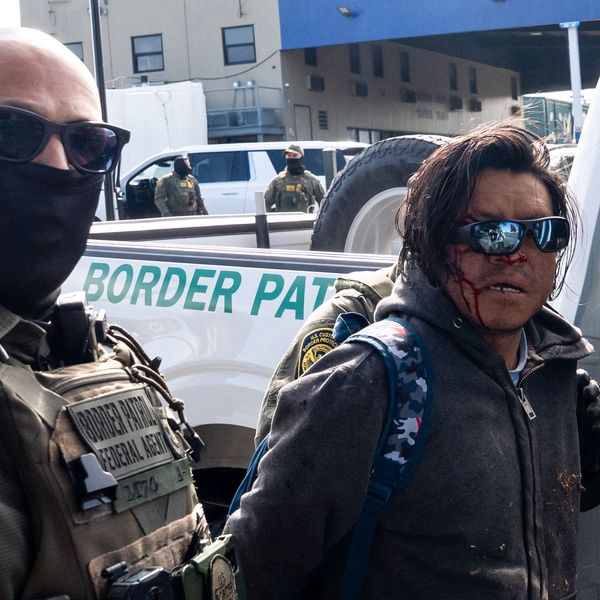French lawmakers on Wednesday responded to the Nice attacks by calling for a fourth extension of the nation's controversial state of emergency.
First declared following the November 2015 terrorist attacks in Paris, the state of emergency has been met with widespread criticism from human rights and civil liberties groups, who say it curtails fundamental freedoms. And now, evidenced by this latest push, "It may well prove that this extraordinary state will become France's new ordinary," Robert Zaretsky, professor of history at the University of Houston's Honors College, writes.
The measure just backed by the National Assembly, the lower house of the parliament, would continue to "give the police extra powers to carry out searches and place people under house arrest--[and would] remain in place until the end of January 2017," Agence France-Presse reports. The expanded power would "allow authorities to search luggage and vehicles without prior approval from a prosecutor," let "police to seize data from computers and mobile phones without needing permission from a prosecutor," and give police the ability to search a suspect's home without a judges consent, The Local reports.
As Euronews reports, "The changes must now be put before the Senate and following that, France's Constitutional Court will give its ruling."
President Francois Hollande had said last week that the state of emergency would not be extended beyond July 26, when it was set to expire. "We can't prolong the state of emergency forever," he said on Bastille Day just before the attack. "That would make no sense, it would mean that we were no longer a republic with laws which can apply in all circumstances." But he took an "instant U-turn" following the Nice attack, and called for lawmakers to extend the state of emergency.
The Guardian also reported this week: "France is the second biggest contributor to U.S.-led airstrikes against ISIS. After the Nice attack, Hollande said he would step up airstrikes further. His defense minister will travel to Washington this week to discuss this."
According to Philippe Aigrain, co-founder of the Paris-based internet freedom association La Quadrature du Net, "what remains of dignity in Parliament will be measured by the number of votes to reject the state of emergency. What remains of justice and reason in our society will be measured by counting those who refuse to scream 'war, war, war' with those who want to be able to say tomorrow that we have no choice but conducting it all out."
What would an effective response to the attacks look like instead? Philippe Marliere, professor of French and European politics at University College London, argues that
A progressive and effective anti-terrorist strategy would make different choices: it would put an immediate end to France's military interventions overseas, as, it can be argued, they only foment political instability and sustain the refugee crisis. It would abandon the neoliberal and austerity policies that have impoverished the working-class populations (which include immigrants and their descendants). It would finally train a police force to protect and serve the people and not, as is generally the case at present, to repress members of the ethnic minorities and behave in an arbitrary manner.
Meanwhile, as Telesur reported Tuesday, France is also dealing with an effect of the strategy it took: overcrowded prisons.
It now has a record number of prisoners--nearly 70,000; that's beyond its formal capacity of roughly 58,000 prisoners. The news outlets report: "Among the effects of the recent policy [implemented during the state-of-emergency], the penitentiary office found a 14 percent increase of accused people awaiting trial in prison while the proportion of sentenced inmates remained stable."


